1. What is MCP (Model Context Protocol), and why is ArcBlock so enthusiastic about its integration?#
The Model Context Protocol (MCP) is an open standard introduced by Anthropic in November 2024 that enables AI models to interact seamlessly with external tools and data sources via a standardized interface. It’s likened to a “USB-C for AI,” fostering interoperability across diverse systems, "Introducing the Model Context Protocol." ArcBlock, a platform for building decentralized applications, is adopting MCP because it addresses the AI industry’s interoperability challenge, breaking down silos between models and proprietary tools. ArcBlock sees MCP as a game-changer—akin to HTTP’s impact on the web—unlocking a dynamic, open AI ecosystem that aligns with its decentralized vision.
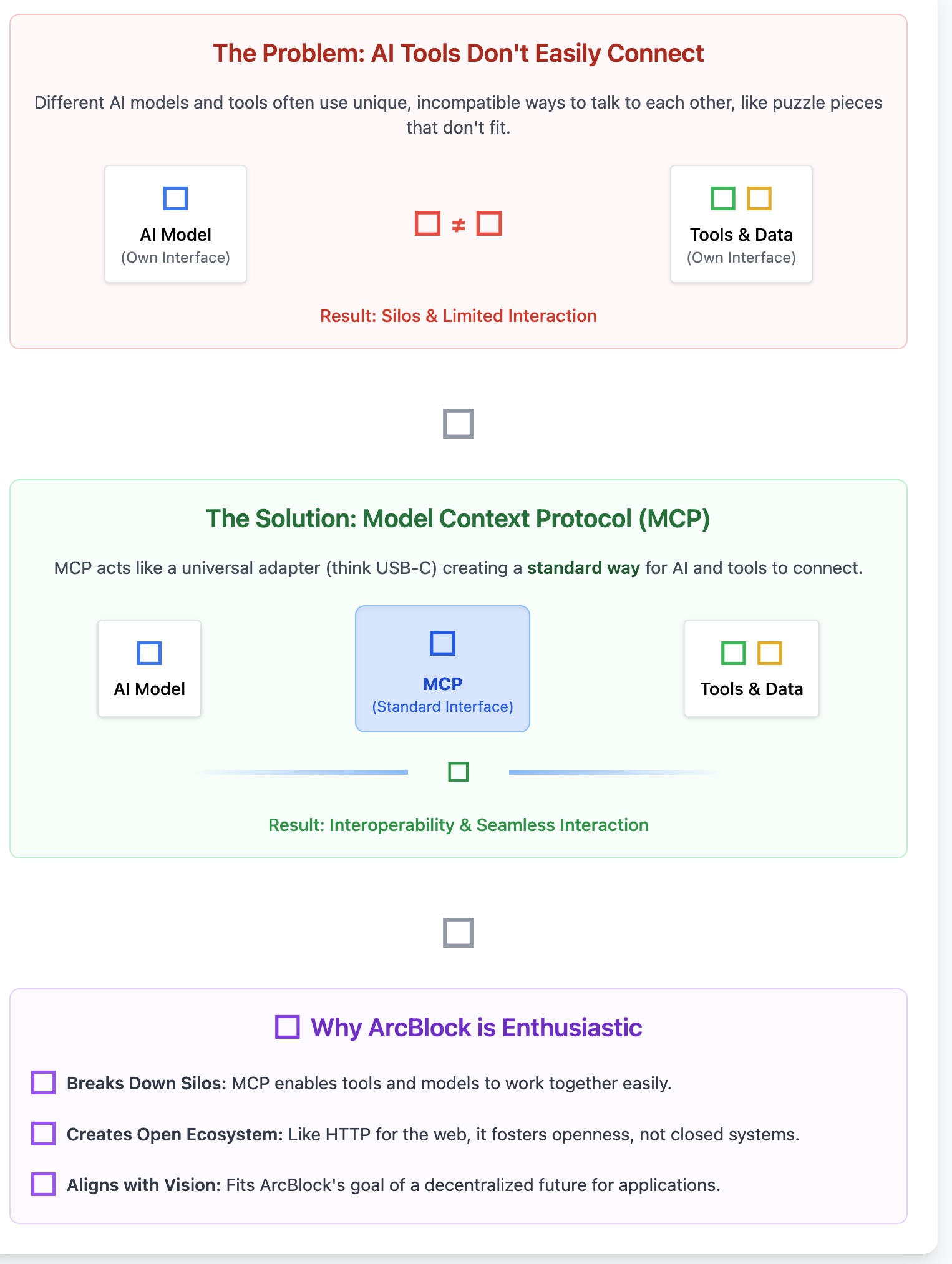
2. How does ArcBlock specifically plan to integrate MCP into its platform?#
ArcBlock intends to integrate MCP at a foundational level alongside its decentralized identifier (DID) protocol. Each "blocklet"—ArcBlock’s modular app components—will function as both an MCP server (exposing capabilities to AI models) and an MCP client (consuming external MCP-compatible tools). This dual integration aims to amplify ArcBlock’s platform versatility, enabling seamless interaction with the broader MCP ecosystem. While specific plans may evolve, this aligns with ArcBlock’s focus on modular, interoperable software called Blocklets.
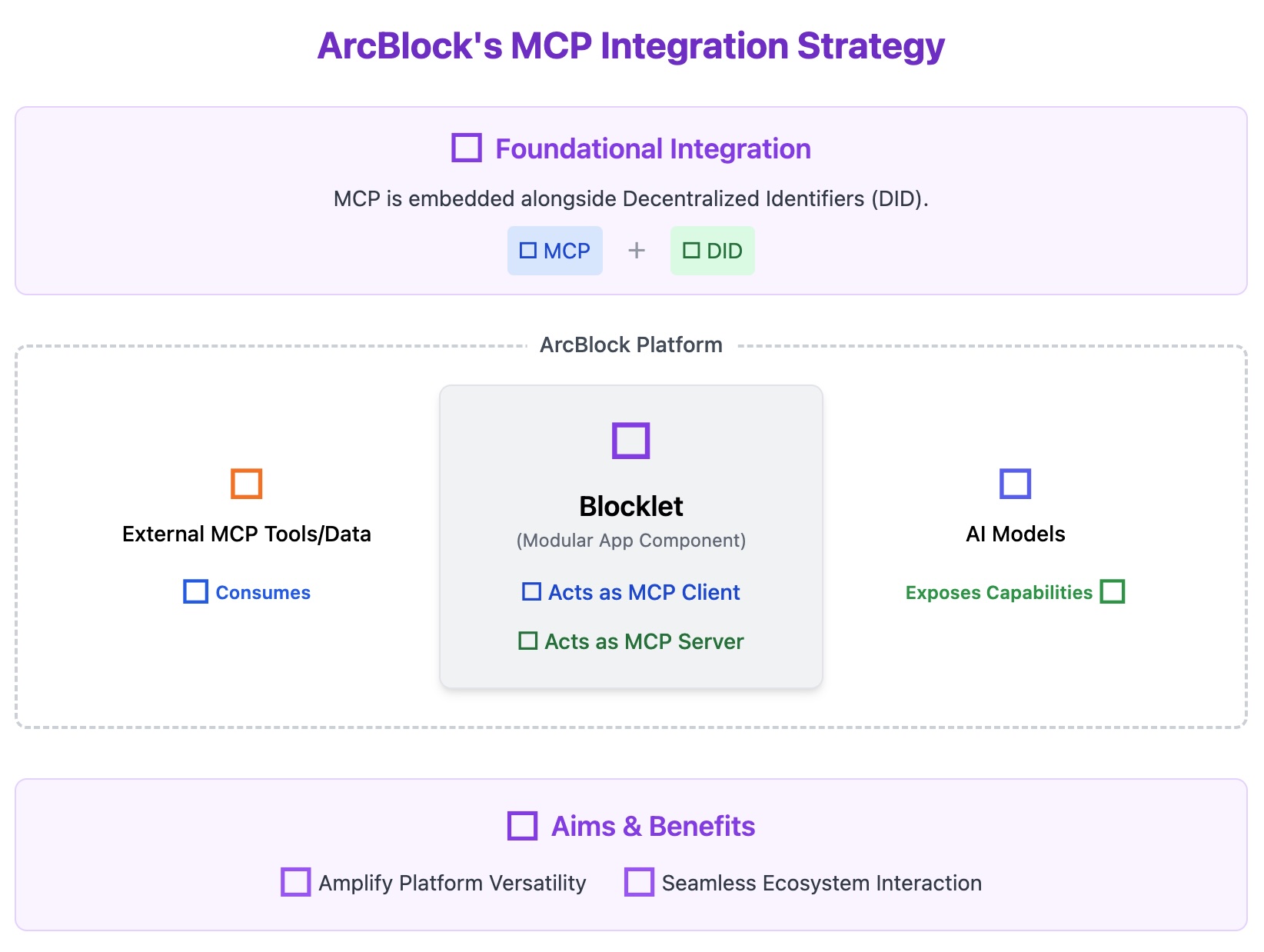
3. What are the inherent limitations of the MCP protocol, particularly concerning security, authentication, and payment, and how is ArcBlock addressing these?#
MCP lacks robust built-in security, authentication, and payment mechanisms—similar to early HTTP arXiv, "Model Context Protocol (MCP): Landscape, Security Threats," 2025. ArcBlock addresses these by leveraging its blockchain expertise. It plans to utilize its DID protocol for decentralized identity and authentication and use blockchain for secure, payment-enabled transactions among AI agents. This approach builds on ArcBlock’s existing strengths in decentralized trust ArcBlock, "Decentralized Identity".
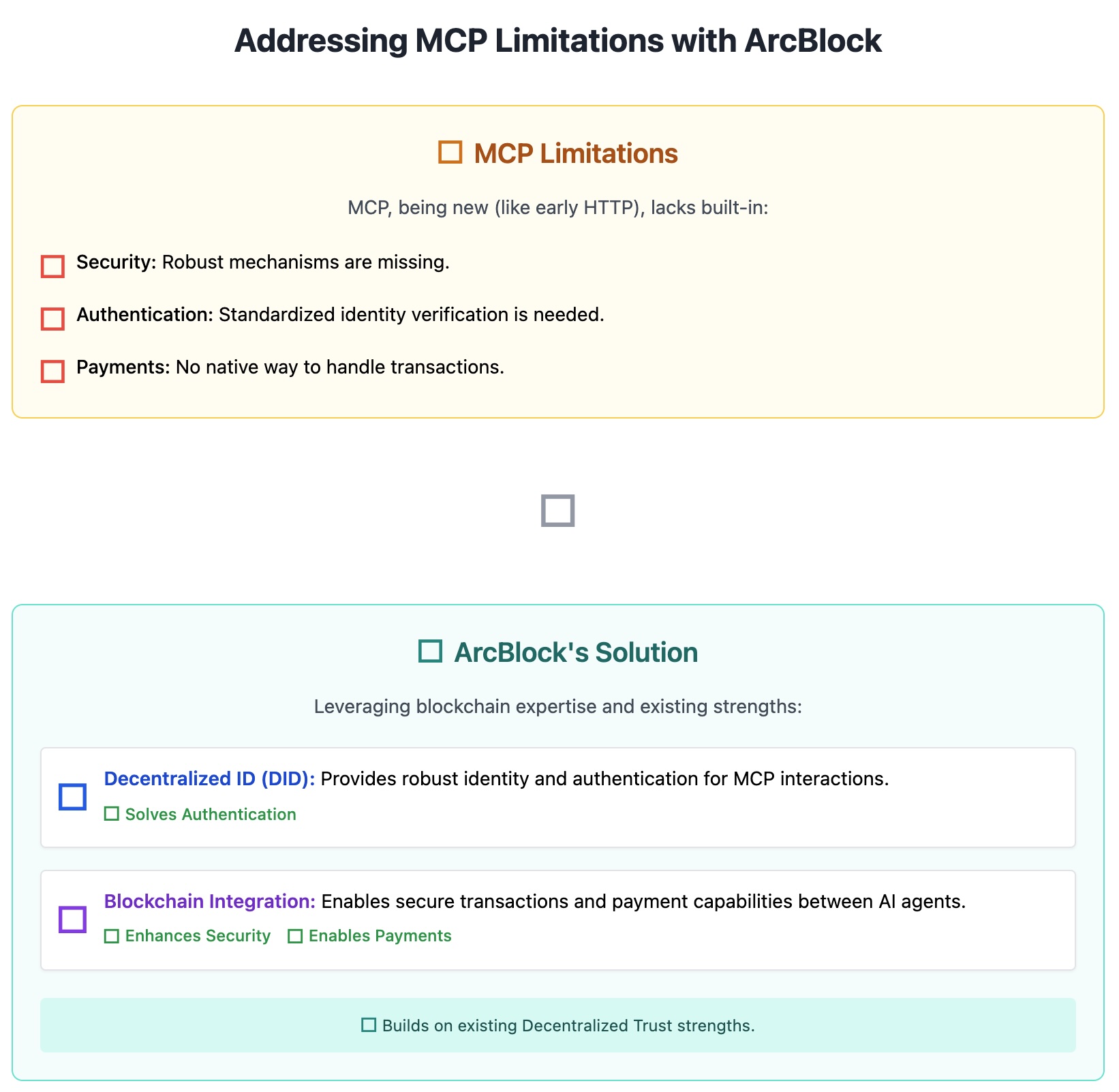
4. How does ArcBlock envision the user experience in an MCP-driven ecosystem, and what strategies are being considered to ensure it remains user-friendly?#
ArcBlock aims for MCP to operate invisibly, much like internet protocols, delivering intuitive AI-driven applications without exposing technical complexity to users. Developers may initially engage with MCP directly, but ArcBlock’s strategy focuses on crafting accessible interfaces and ensuring anyone can access the tools and services they need for their project. The goal is an experience where AI feels naturally intelligent, powered by MCP in the background.
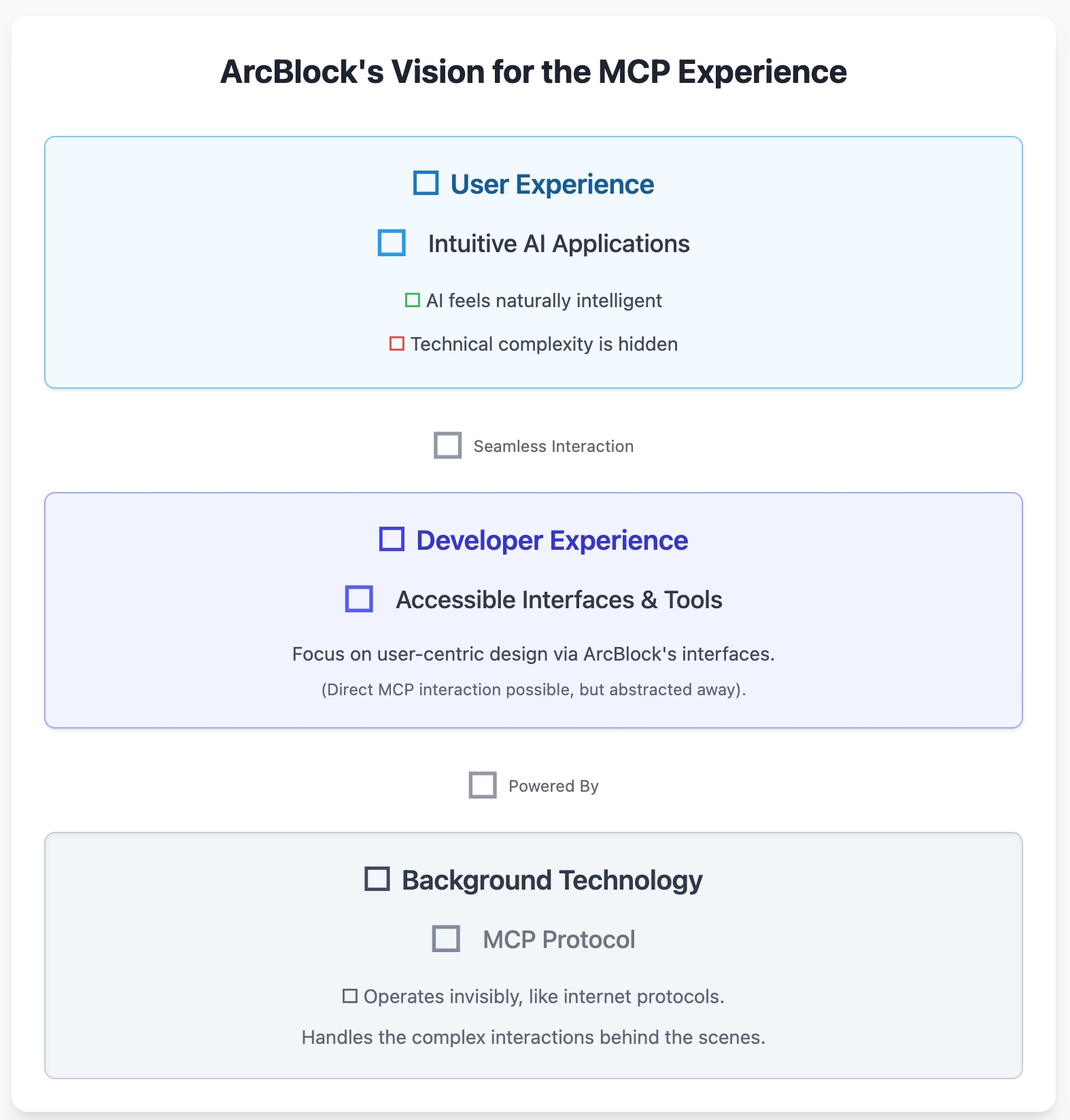
5. What role does ArcBlock see itself playing in the evolving MCP ecosystem through partnerships, collaborations, and the development of new tools and services?#
ArcBlock positions itself as a key player by embedding MCP into its infrastructure, enabling developers to create and deploy MCP-compatible tools. It plans to foster partnerships to expand the ecosystem and develop innovative services addressing MCP’s gaps (e.g., security, payments), leveraging its decentralized tech expertise ArcBlock, "Partner Ecosystem"]. This aligns with MCP’s collaborative ethos Anthropic, "MCP GitHub"].
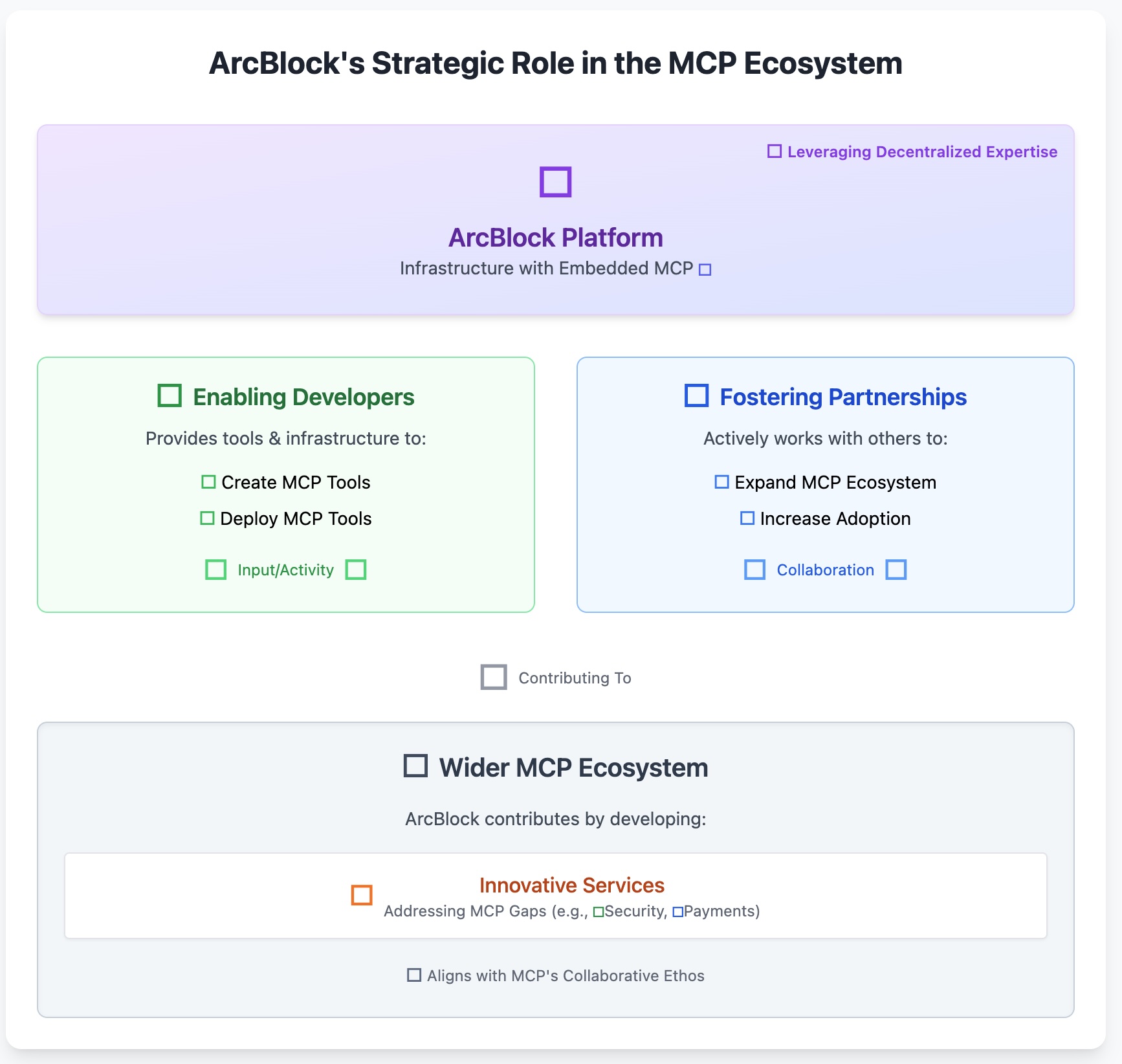
6. How might the integration of MCP on platforms like ArcBlock influence the development and nature of decentralized applications (dApps)?#
MCP integration could revolutionize dApps on ArcBlock by making blocklets MCP services, accessible to a wide range of AI models, and allowing dApps to tap into diverse AI tools ecosystem-wide. This expands dApp capabilities, driving smarter, more adaptable applications—a natural fit for ArcBlock’s decentralized mission ArcBlock, "dApp Development"]. Industry insights suggest this could accelerate dApp adoption Medium, "MCP: Revolutionizing AI Integration," 2025].
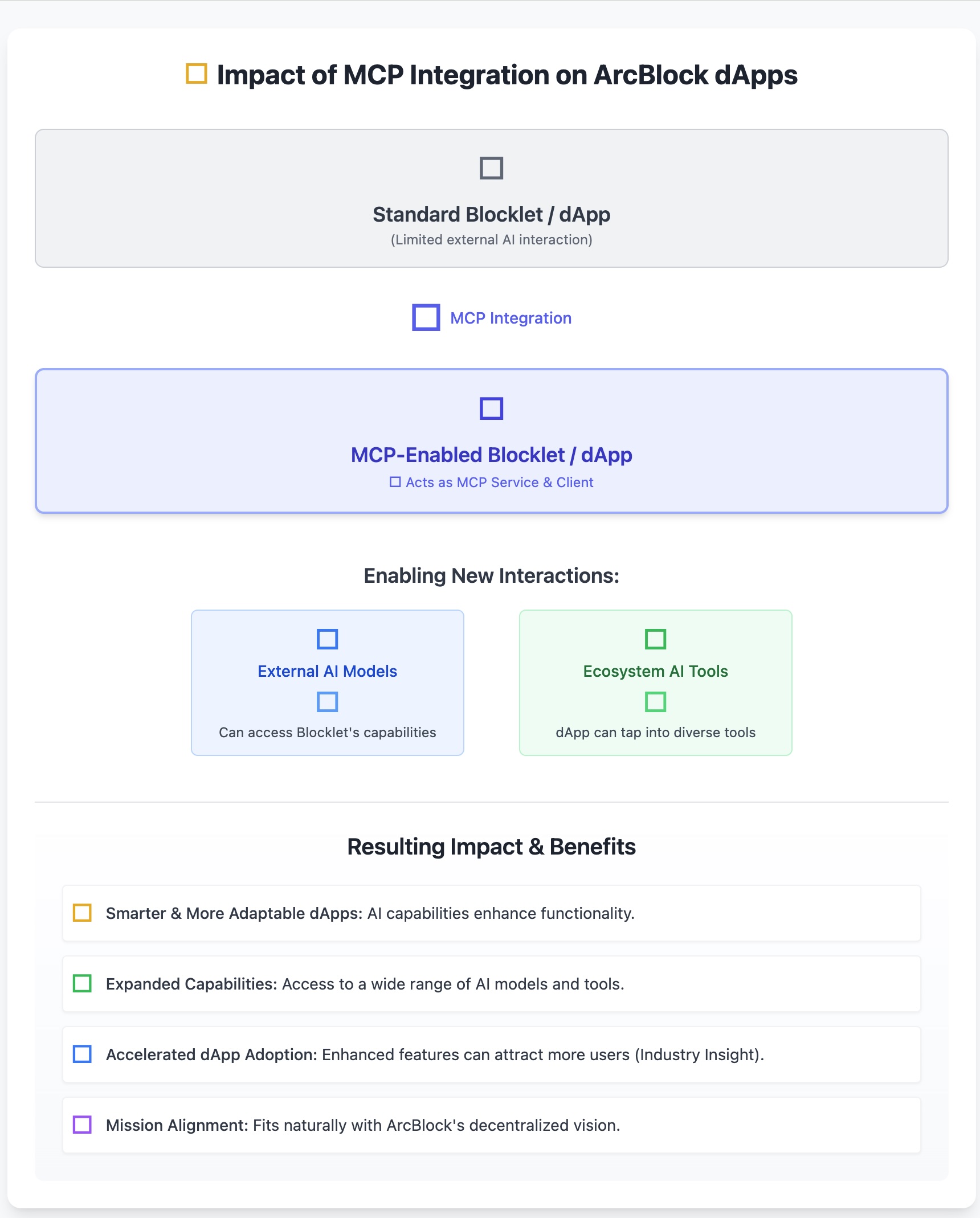
7. In the context of AI and blockchain convergence, how does ArcBlock foresee the evolution of interactions beyond initial payment use cases toward areas like data privacy and security?#
ArcBlock envisions a progression from AI agent payments via cryptocurrency to broader applications like data privacy and security. Using blockchain’s transparency, DIDs, and verifiable credentials, ArcBlock aims to ensure secure, auditable AI interactions—enhancing user trust and control. This builds on its privacy-focused framework ArcBlock, "Data Privacy Solutions"] and aligns with MCP’s potential evolution arXiv, "MCP: Future Directions," 2025].
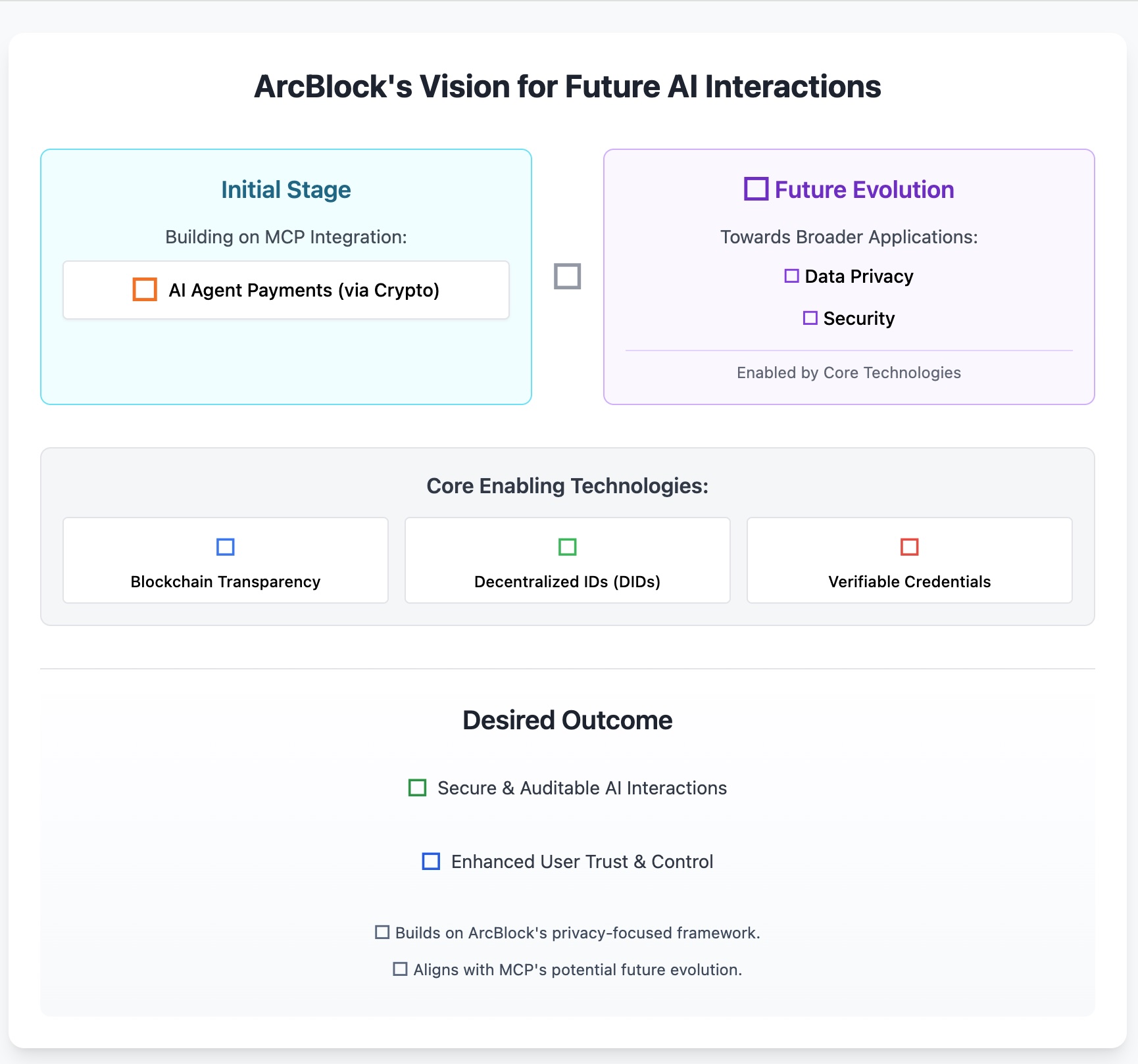
8. How does ArcBlock’s decentralized platform address the challenges of scaling AI?#
The scalability of centralized AI is limited by the capacity and resources of its centralized framework, posing challenges in managing sudden increases in data volume or user demand. Maintaining performance and controlling costs may become increasingly difficult as the framework expands. In contrast, decentralized AI can leverage extensive network scalability and decentralized infrastructure tailored for hosting dApps and AI. ArcBlock's Launcher and Blocklet Server can rapidly scale to accommodate additional assets and users, providing a versatile solution for global applications.
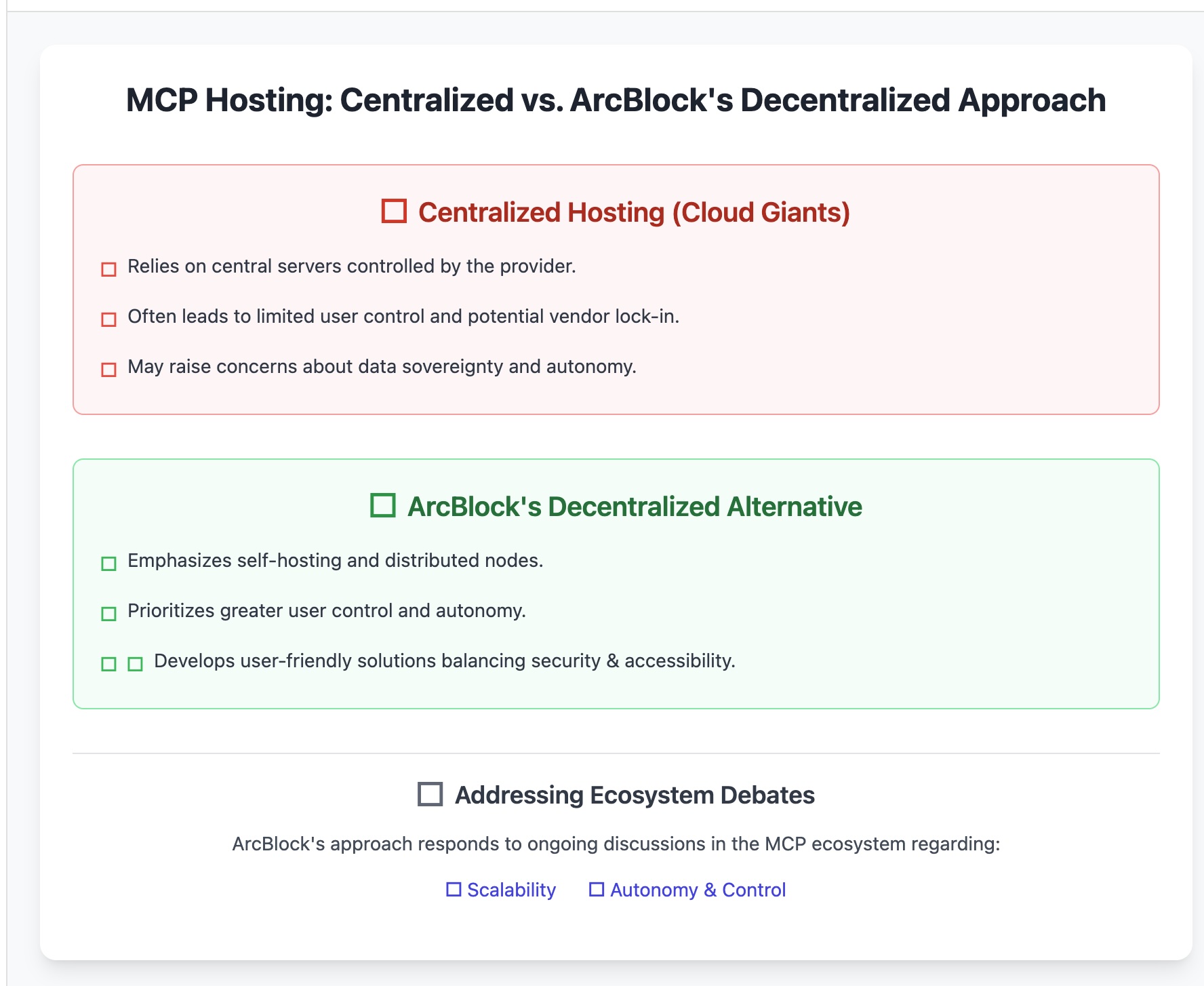
Deep Dive#
If you want to learn more or see the full interview with ArcBlock CEO Robert Mao discussing Decentralized AI, MCP, and the future of ArcBlock, click the link below.
